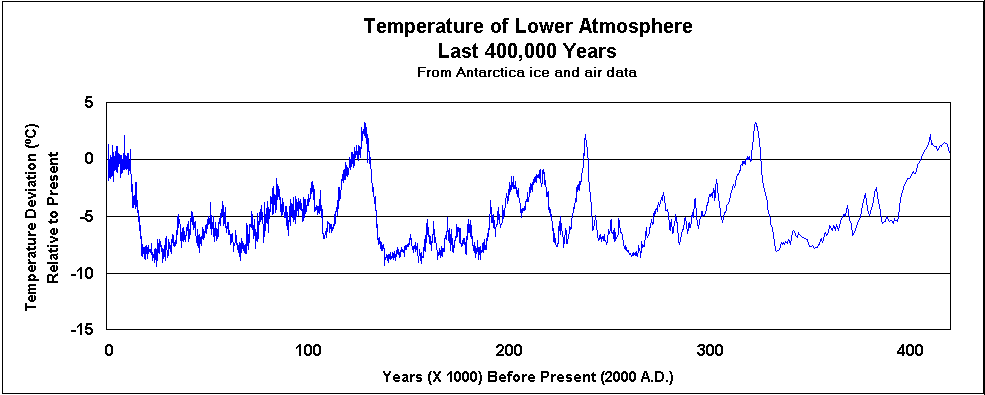That's not actually a relevant statement. We know that there are natural variations. However the causes of those natural variations in the past do not seem to be the cause of warming now. So, to misquote Sherlock, when you've excluded those things that don't seem to be the cause, what you are left with, no matter how politically inconvenient, is probably the truth.
The only problem is, there is disagreement over what the roles of each cause are now. Yes, the Earth is warming, and yes, part of it is definitely because of human action. But part of it is also natural, and anyone who claims to know for sure the extent of each is nothing but a liar. And anyone who claims to know the economic impacts of the warming is an even worse liar.
I am entirely convinced it would be cheaper to deal with the effects of the warming (in the places where it will bring problems, and those may well be a minority) than embark in some holy crusade to cool the planet, which is doomed to fail anyway.



